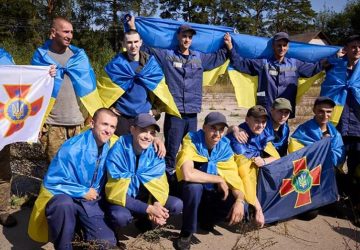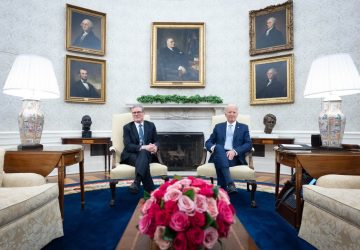On Tuesday July 18, Leaders from Europe, Latin America, and the Caribbean were unable to reach a consensus on a statement that would hold Russia accountable for its involvement in the war in Ukraine. This outcome underscored the contrasting perspectives and divisions among these leaders regarding the ongoing crisis.
European, Latin American and Caribbean leaders on Tuesday failed to agree on a statement holding Russia to account for the war in Ukraine, highlighting their differences over the crisis.
The joint communique issued after the EU and the Community of Latin American and Caribbean States (CELAC) summit expressed “deep concern” about the conflict but contained no mention of Russia.
And, even this position, adopted after the first such summit in eight years, was rejected by one of the approximately 60 countries represented, understood to be Nicaragua.
Before the talks, European leaders such as Luxembourg’s Prime Minister Xavier Bettel had said it would be “a shame” if the leaders failed to state clearly that “Russian aggression” was the cause of the deadliest war in Europe in decades.
Summit host Charles Michel, the president of the European Council, said Europe would always reiterate its determination to “defend Ukraine against this aggression by Russia and if you look at this declaration … there are a number of points that refer to that situation.”
But the word “Russia” did not appear in the communique.
Gonsalves played down this omission in colorful terms.
Diplomats said Nicaragua, Cuba and Venezuela had opposed language criticizing Russia, and other countries, while agreeing to support Ukraine’s sovereignty, had stressed that different crises and conflicts were also worthy of the world’s attention.
The statement expressed “deep concern” over the devastating effects of the conflict on Ukraine and on the global economy, and affirmed “the need to respect the sovereignty, political independence and territorial integrity of all nations.”
The leaders acknowledged that CELAC had raised the issue of reparations, and said they “profoundly regret the untold suffering inflicted on millions of men, women and children as a result of the trans-Atlantic slave trade … a crime against humanity”.
As the leaders met in Brussels, Russia refused to extend a deal to allow Ukrainian grain exports through the Black Sea, drawing a warning from the UN that millions of the world’s poorest would “pay the price”.
Poland’s Mateusz Morawiecki was blunt, arguing that countries which once suffered from European colonialism should recognize that Russia is now an imperialist threat.
Khalil Wakim, with AFP





